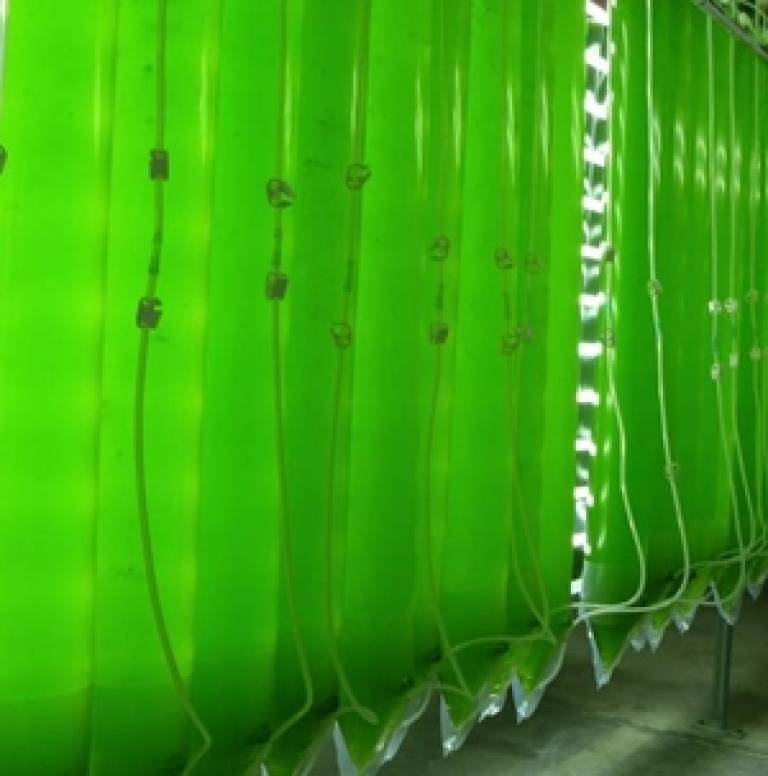New project explores using algae to produce speciality oils
11 December 2013
A new UCL project is developing the idea that microalgae could provide more sustainable production of a wide range of useful oils - from omega-3 polyunsaturated fatty acids to lubricants to next-generation biofuels.

Part of a wider funding announcement for longer-term science projects by the BBSRC, the £2.4 million project is being led by Dr Saul Purton from the UCL Institute of Structural and Molecular Biology.
Dr Purton said: "These photosynthetic microorganisms offer many advantages in an industrial context; they do not compete with food crops for arable land, growth rates and productivity is very high, and they can be cultivated in fermenters where conditions can be controlled.
He added: "So that we can exploit this and create algal platforms for a range of industrial biotechnology applications, we need to develop new technologies for the efficient and predictable engineering of their biology."
This project will use synthetic biology approaches to develop the molecular tools needed for genetic improvement, together with predictive models and high-throughput cell analysis techniques
The vital knowledge generated by this research will help to address the threat of farmed-animal diseases, the health of an ageing population, and the need for more sustainable industries and energy sources.
Professor Jackie Hunter
The work will focus on two marine microalgae: Phaeodactylum tricornutum and Nannochloropsis gaditana, both of which have sequenced genomes and naturally accumulate oils. The tools and technologies will be brought together and tested to confirm that 'bespoke' strains of microalgae can be created to produce high levels of desired oils.
Professor Jackie Hunter, BBSRC's Chief Executive, said: "This public funding offers long-term support to address major research challenges, while building research capacity in important areas and maximising economic and social benefits for the UK."
"The vital knowledge
generated by this research will help to address the threat of farmed-animal
diseases, the health of an ageing population, and the need for more sustainable
industries and energy sources."
Image: A 'hanging bag' fermenter system for cultivation of
microalgae
Links:
 Close
Close

